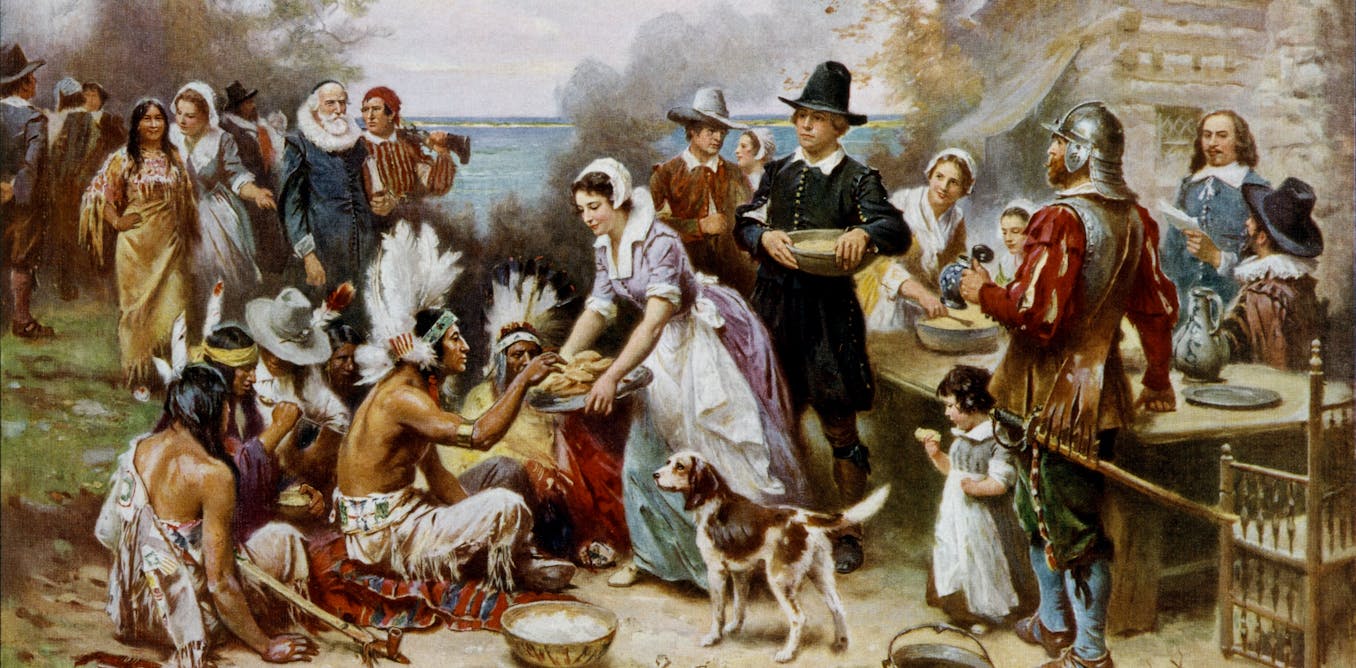
"Communal rituals of giving thanks have a longer history in North America, and it was only around the turn of the 20th century that most people in the U.S. came to associate Thanksgiving with Plymouth "Pilgrims" and generic "Indians" sharing a historic meal. The emphasis on the Pilgrims' 1620 landing and 1621 feast erased a great deal of religious history"
"and narrowed conceptions of who belongs in America - at times excluding groups such as Native Americans, Catholics and Jews. Farming faiths and harvest festivals The usual Thanksgiving depiction overlooks Indigenous rituals that give thanks, including harvest festivals. The Wampanoag, who shared food with the Pilgrims in 1621, continue to celebrate the cranberry harvest, and similar feasts were held long before Columbus sailed and Pilgrims landed."
Nine in ten Americans gather to share food on Thanksgiving. The association of Thanksgiving with the Pilgrims' 1620 landing and 1621 feast became widespread only around the turn of the 20th century. That emphasis erased much religious history and narrowed conceptions of who belongs in America, at times excluding Native Americans, Catholics and Jews. Communal rituals of giving thanks have a much longer North American history, including Indigenous harvest festivals. The Wampanoag continue to celebrate the cranberry harvest. Cahokia hosted late-11th-century communal feasts where people gave deities thanks, smoked ritual tobacco, and ate symbolically significant animals five centuries before the Pilgrims.
Read at The Conversation
Unable to calculate read time
Collection
[
|
...
]